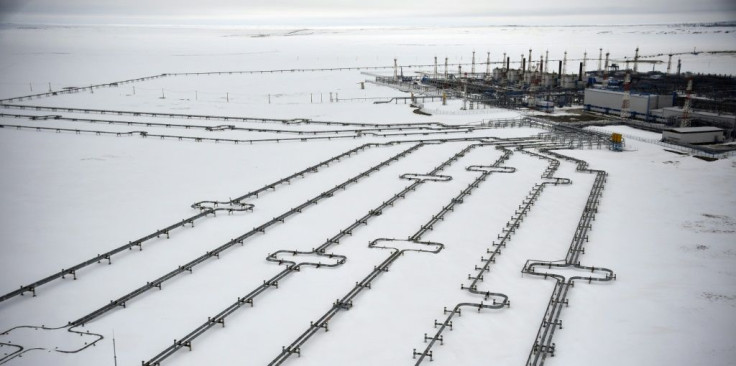Europe Tells US To Back Off Over Russian Pipeline

Europe on Thursday warned Washington to mind its own business after US lawmakers gave initial approval to a bill that would sanction contractors working on a Russian pipeline to the continent.
Brussels "opposes the imposition of sanctions against any EU companies conducting legitimate business," EU Trade Commissioner Phil Hogan said.
"The (European) Commission objective has always been to ensure that Nord Stream operates in a very transparent and in a non-discriminatory way with the appropriate degree of oversight," he said.
The 9.5 billion euro ($10.6 billion) Nord Stream 2 pipeline will run under the Baltic Sea and is set to double shipments of Russian natural gas to Germany.
Europe's biggest economy had particularly sharp words for Washington.
"European energy policy is decided in Europe, not in the US," Foreign Minister Heiko Maas said on Twitter.
"We reject external interference," he said.
The German-Russian Chamber of Commerce (AHK) said the pipeline was important for the energy security of Europe as a whole and called for retaliatory sanctions against the United States if the bill passes.
"Europe should respond to sanctions that damage Europe with counter-sanctions," said AHK chief Matthias Schepp.
Supporters of the 1,230-kilometre (760-mile) line say it will be a reliable source of cheap energy but critics warn it could end up vastly increasing Russia's political influence in Europe.
Germany's Schepp said the sanctions would end up affecting European companies more than Russia.
Half of the project is financed by Russian gas giant Gazprom, with the rest covered by its European partners: Germany's Wintershall and Uniper, Anglo-Dutch Shell, France's Engie and Austria's OMV.
"We are aware of the ongoing legal procedure in the US Congress and the political debates. We cannot comment on any implications for our project," said Jens Mueller, a spokesman for Nord Stream 2.
Despite its own diplomatic tensions with Russia, including over the murder of a former Chechen rebel in Berlin earlier this year, Germany has repeatedly defended the long-running project.
The German economy ministry said it was awaiting the result of a US Senate vote expected next week on the bill -- part of much wider US defence legislation.
US President Donald Trump has already said he would sign off on the measures if they are approved.
The bill requires the US State Department to report back within 60 days with the names of companies and individuals involved in pipe-laying for Nord Stream 2 and TurkStream, another pipeline from Russia to Turkey.
The sanctions envisioned by the bill include asset freezes and revocation of US visas for the contractors.
One major contractor that could be hit by the sanctions is Swiss-based pipeline laying company Allseas, which has been hired by Gazprom to build the offshore section.
Contacted by AFP, Allseas would only say it was "closely following the situation and will not speculate on potential impacts of proposed sanctions".
The power of Gazprom and therefore the Russian state is at the centre of concerns about the pipeline in the United States and in eastern and central Europe.
Europe is Russia's main customer for natural gas and critics fear the pipeline, which has an annual capacity of 55 billion cubic metres, will increase its reliance.
Countries like Ukraine, a major transit country for Russian gas, also fear they could lose influence.
Russia had hoped to launch the pipeline in late 2019 but the completion has been delayed by difficulties in obtaining permits from Denmark.
In October, Copenhagen gave Russia a permit to build a section of the pipeline on the Danish continental shelf in the Baltic Sea.
Russian Deputy Prime Minister Dmitry Kozak told reporters last month that he expected the pipeline to become operational in mid-2020.
© Copyright AFP 2024. All rights reserved.




















